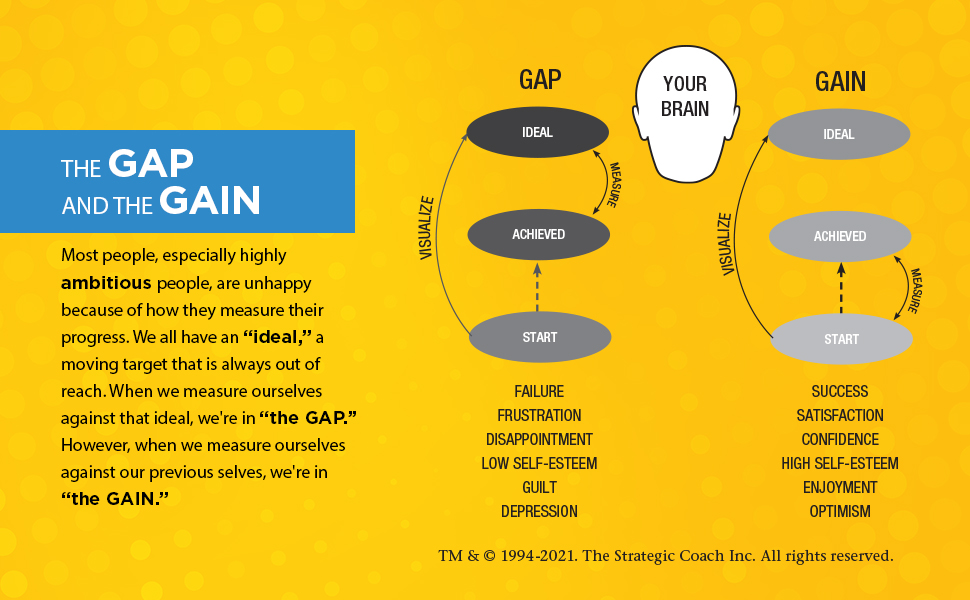Throughout my life I've been a "seeker" of sorts. As a child I would disassemble toys to find what made them tick. Science was always my favorite subject since assumptions could be tested and empirically proven or not. My question-everything approach got me in trouble during my Lutheran confirmation class when I was 14. I evoked Thomas Jefferson in front of my Pastor with, "question with boldness even the existence of God for if there is one, he must more approve the idea of reason than that of blindfolded fear." As you can imagine, that didn't go over well. That's also when I decided to part ways with organized religion.
As the years (ok, decades), went by I increasingly sought external knowledge believing the answers to many of my questions were out there, I just needed to keep searching. Not surprisingly, answers lead to more questions and I realized there was no end to this rabbit hole.
Yet somehow I felt like I didn't really change during my pursuit of external knowledge. Sure, I accumulated tools and ideas but I myself wasn't fundamentally changing at my core. When I really tuned in, that's what I was looking for.
Which presented me with a problem. How do I turn inward and work on myself?
My first attempt was to see myself for who I wasn't in comparison to what I wanted to be. I didn't have a term for it until recently when I was introduced to Dan Sullivan and Benjamin Hardy's concept of the Gap and the Gain.

I always focused on the gap. The internal critical was a harsh one. With nearly every accomplishment I would quietly lash myself for not doing it better, not going bigger or not trying harder. On the outside, I was all smiles but on the inside I was struggling. The comparison between where I was, and where I wanted to be felt too great. To make matters worse I would compare myself to my peers. When I saw them succeed I'd tell myself it was proof that I was a looser and others had life figured out. If I'm honest, this still hasn't gone away for me but I'm keenly aware of it today.
I was stuck. The more I attempted to grow myself, the more depressed I was becoming. Sure, I was collecting experience and knowledge but what I couldn't see were my blindspots.
If you are like me, you don't often think about blindspots. They are called blindspots for a reason, we typically don't acknowledge them. When we look for them; well, they just aren't there for us to see.
In 2012 I discovered EO (Entrepreneurs Organization), and I quickly dove deep. In EO members are broken out into Forums, or small groups of 6 to 9 members. Each month the Forums gathered privately to go deep, working on the bottom and top 5% of our life experiences. The middle 90% of experience is known to the public, our spouses or co-workers. It's in the 10% edge conversations where growth really happened at an accelerated clip, hence the focus.
Most would consider EO Forums to be called either a mastermind or peer-group, identical to my Deep Forest entrepreneurial group that I run today. These groups are typically made up of regular members that get to know each other on a very personal basis. As you might imagine, the group works on developing a very high-degree of trust and confidentiality. Without it, masterminds would have far more limited impact on growth.
When it comes to uncovering blindspots, the group acts as a mirror or backup-sensor on a car. The group doesn't grab the steering wheel or tell you where to go, it simply highlights what is happening and could happen if you stay the course. Trusting a backup sensor is easy. It's a machine and isn't subject to the messy world of human emotions. In a mastermind forum, what's required is both vulnerability and trust. I found that the more I could trust and be vulnerable with my peers, the more I would gain in personal knowledge. The group then learns more about themselves, it's truly a win-win.
One exercise really embodies this practice, it's called Johari's Windows. It's not as mystical as it sounds.
The exercise is a formal process of holding up value-based mirrors within a group of trusted peers. It highlights the values that need further discussion and sharing, thereby opening up new areas of knowledge.
Lastly, I believe there are a few traits which facilitate the uncovering of blindspots. In my experience, the deeper you trust in each trait the greater knowledge you'll gain.
Trust: This is a must for most people. It's the rare person that can deeply share with strangers. Trust is typically earned, therefore invest time and energy into the group before working on blindspots. Develop agreements around sharing confidential information and stick to it. This presented a major issue for me in my marriage to my ex-wife. She felt she had a privileged position to know all of my conversations, to which I disagreed. In defense she labeled my EO Forum as a cult because our information was private. Regardless of how much she pressed or berated me she wasn't going to hear those discussions. I trusted my peers were holding to the same standard.
Vulnerability: Yes, what you privately share can hurt you in the default world. In a trusted group of peers, you can go deep. The peer group creates a safe and trusted place to hold discussions typically reserved for your private journal or late night thoughts.
Curiosity: Those that approach peer group feedback with a sense of curiosity and wonder are well suited to receive the feedback. If the process is new to you, I suggest trying to detach from who you are while receiving feedback. Look at yourself from a disembodied perspective, an get curious about the feedback being received.
Ego-less: If the peer group is honest and forthcoming, the Ego is likely going to build walls, that's expected. I personally have to take a deep breath when receiving feedback that goes against my known view of myself. My body tells me everything when the feedback comes in. Do I feel tight? Expansive? Cold? Lighter? I share these feelings with the group and they help me ease into the feedback.
Personally, I believe everyone who has a desire to grow as a human should be in a peer-group. This could take many forms, a group of close friends, co-workers, teammates or religious groups. Just be intentional about the rules of engagement and expectations within the group. There are plenty of professional peer-groups for all areas of focus, I know the entrepreneurial groups the best, such as Deep Forest, EO, YPO, Vistage etc. Check them out, find a group that's best for you. I wish you luck in developing vision into your blindspots.
(Disclaimer: I don't re-write or edit my writing. It's done in the format of a self-journal. I apologize in advanced for grammatical mistakes that you'll surely find.)

